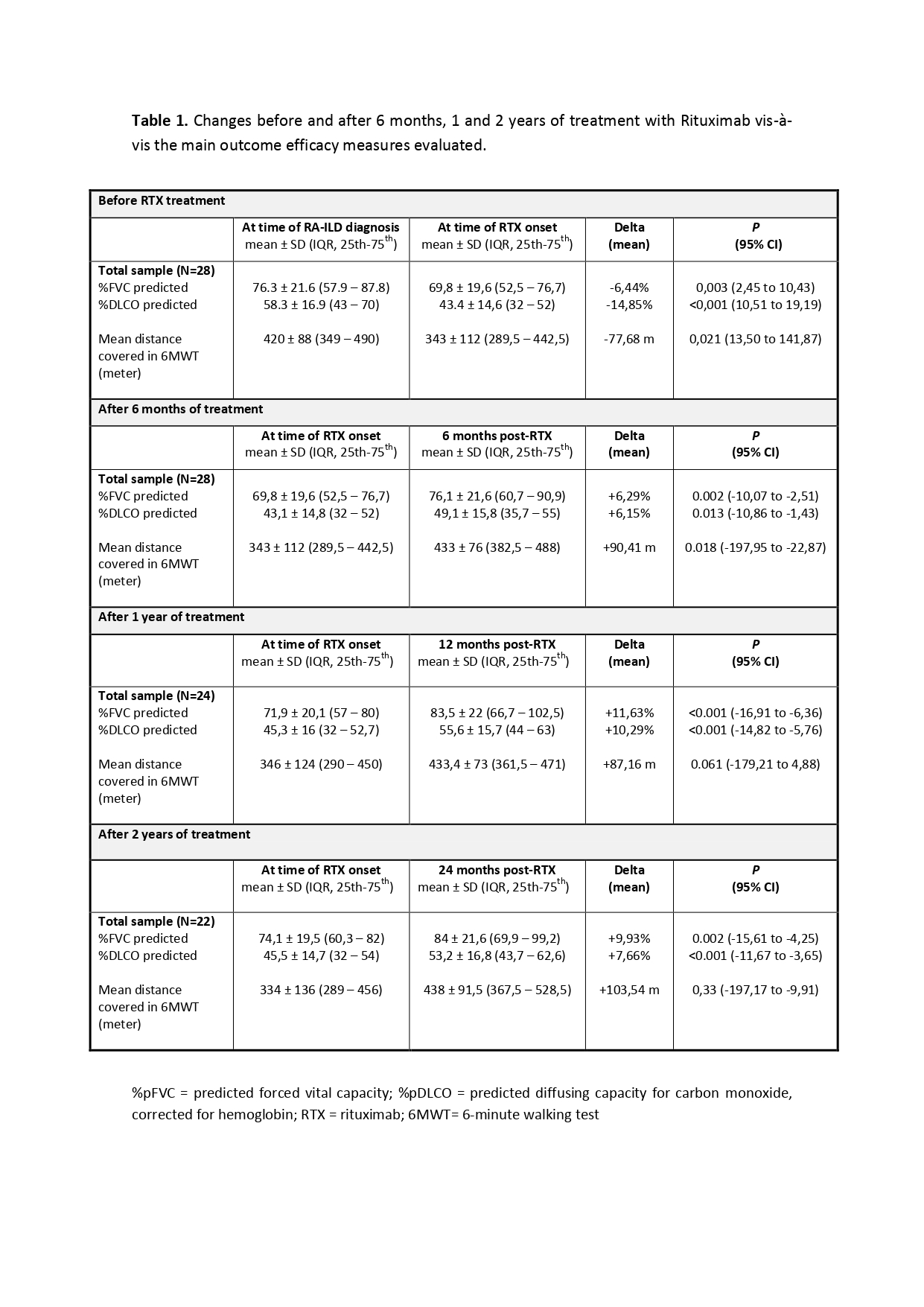Session Information
Date: Monday, November 13, 2023
Title: (1155–1182) Muscle Biology, Myositis & Myopathies – Basic & Clinical Science Poster II
Session Type: Poster Session B
Session Time: 9:00AM-11:00AM
Background/Purpose: To assess the real-world, long-term effectiveness of rituximab (RTX) as a rescue therapy in patients with antisynthetase syndrome and interstitial lung disease (ASS-ILD).
Methods: Multicentre observational retrospective longitudinal study of a cohort of patients with ASS-ILD that started treatment with RTX due to recurrent or ongoing progressive ILD despite therapy with glucocorticoids and immunosuppressants.
Results: Twenty-eight patients were analyzed; 15 fulfilled the criteria of progressive pulmonary fibrosis. Ongoing therapy with immunosuppressants remained unchanged. Examining the entire study population, before treatment with RTX the mean decline in %pFVC and %pDLCO from the ILD diagnosis was -6.44% and -14.85%, respectively. After six months of treatment, RTX reversed the decline in pulmonary function test (PFTs) parameters: ∆%pFVC +6.29% (95% CI: -10.07 to 2.51; p=0.002 compared to baseline) and ∆%pDLCO +6.15% (95% CI: -10.86 to -1.43; p=0.013). Twenty-four patients completed one year of therapy and 22 two years, maintaining the response in PFTs: ∆%pFVC: +9.93% (95% CI: -15.61 to -4.25; p=0.002) and ∆%pDLCO: +7.66% (95% CI: -11.67 to -3.65; p< 0.001) [Table 1]. In addition, there was a significant reduction in the median dose of prednisone, and it could be suspended in 18% of cases. In 33% of patients who required oxygen therapy at the start of treatment, it could be discontinued. The frequency of adverse events reached 28.5% of cases.
Conclusion: Based on our results, RTX appears to be effective as rescue therapy in most patients with recurrent or progressive ASSD-ILD unresponsive to conventional treatment. Use of RTX was well tolerated in the majority of patients
To cite this abstract in AMA style:
Narvaez J, Cañadillas-Sanchez E, Castellvi I, Alegre J, Vidal-Montal P, Nolla J. Rituximab in the Treatment of Interstitial Lung Disease Associated with the Antisynthetase Syndrome [abstract]. Arthritis Rheumatol. 2023; 75 (suppl 9). https://acrabstracts.org/abstract/rituximab-in-the-treatment-of-interstitial-lung-disease-associated-with-the-antisynthetase-syndrome/. Accessed .« Back to ACR Convergence 2023
ACR Meeting Abstracts - https://acrabstracts.org/abstract/rituximab-in-the-treatment-of-interstitial-lung-disease-associated-with-the-antisynthetase-syndrome/

